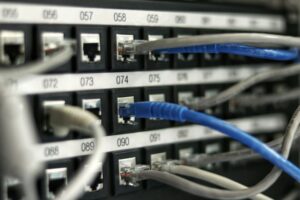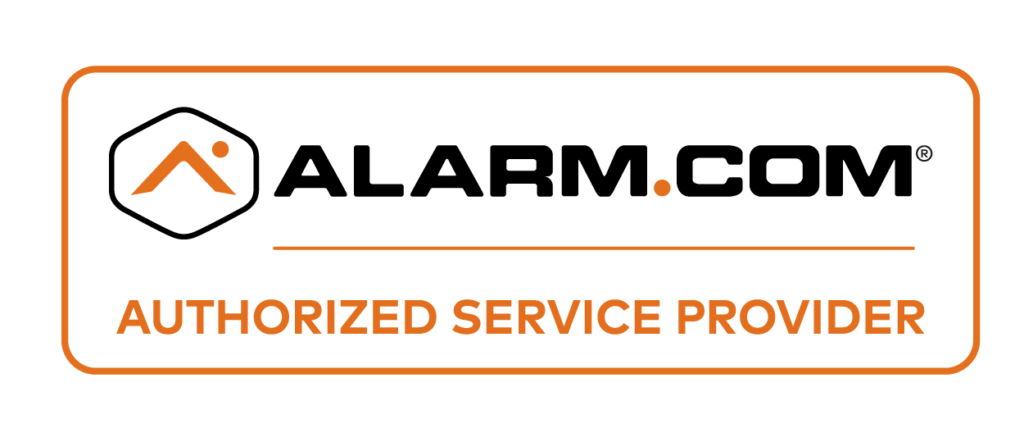Retail spaces are vulnerable to various security threats, including theft, vandalism, and cyber attacks. To mitigate these risks, it is crucial for retail businesses to implement effective security measures. Commercial security measures for retail spaces encompass a range of physical and electronic systems designed to protect employees, customers, and assets. This article will explore the different types of security measures used in retail spaces, the importance of implementing these measures, common security threats faced by retailers, and best practices for implementing commercial security measures.
Key Takeaways
- Commercial security measures are essential for protecting retail spaces from various security threats.
- Types of security measures used in retail spaces include CCTV surveillance, access control systems, and alarm systems.
- Security measures are important in retail spaces to prevent theft, vandalism, and other criminal activities.
- Common security threats faced by retail spaces include shoplifting, employee theft, and organized retail crime.
- CCTV surveillance plays a crucial role in retail security by providing real-time monitoring and evidence for investigations.
Types of Security Measures Used in Retail Spaces
Physical security measures are the first line of defense for retail spaces. These measures include locks, barriers, and surveillance cameras. Locks on doors and windows help prevent unauthorized access to the premises. Barriers such as fences or bollards can be used to control access to parking lots or loading docks. Surveillance cameras, both visible and hidden, are essential for monitoring activity within the retail space and deterring potential criminals.
Electronic security measures are also crucial for retail spaces. Closed-circuit television (CCTV) surveillance systems provide real-time monitoring of the premises and can capture evidence in the event of a crime. Access control systems restrict entry to authorized personnel only, using methods such as key cards or biometric identification. Alarm systems can detect unauthorized entry or other security breaches and alert the appropriate authorities.
Importance of Security Measures in Retail Spaces
Implementing effective security measures is essential for protecting employees, customers, and assets in retail spaces. By reducing the risk of theft, vandalism, and other crimes, these measures create a safer environment for everyone involved. Employees can feel more secure in their workplace knowing that there are measures in place to protect them. Customers also benefit from increased safety and are more likely to have a positive shopping experience.
Retail spaces are often targeted by criminals due to the valuable assets they contain. Theft can result in significant financial losses for businesses. By implementing security measures, retailers can deter potential thieves and reduce the risk of loss. Additionally, security measures can help prevent vandalism and property damage, which can be costly to repair.
Common Security Threats Faced by Retail Spaces
Retail spaces face a variety of security threats on a daily basis. Shoplifting is one of the most common crimes in retail, with both customers and employees being responsible for theft. Burglary and robbery are also significant concerns, especially for businesses that operate during non-business hours. Vandalism and property damage can occur due to various reasons, including disgruntled customers or individuals seeking to cause harm. Lastly, with the increasing reliance on technology, retail spaces are also vulnerable to cybersecurity threats such as data breaches and hacking attempts.
Understanding the Role of CCTV Surveillance in Retail Security
CCTV surveillance plays a crucial role in retail security. These systems consist of cameras strategically placed throughout the retail space to monitor activity. CCTV surveillance works by capturing video footage that can be reviewed in real-time or stored for later use. This footage can be used as evidence in criminal investigations or to identify potential suspects.
The benefits of CCTV surveillance in retail spaces are numerous. Firstly, it acts as a deterrent to potential criminals. The presence of visible cameras can discourage theft and other criminal activities. Secondly, CCTV surveillance provides real-time monitoring, allowing security personnel to respond quickly to any suspicious activity. It also helps in identifying patterns or trends that may indicate potential security risks. Lastly, CCTV footage can be used as evidence in legal proceedings, aiding in the prosecution of criminals.
To implement CCTV surveillance effectively, it is essential to follow best practices. This includes placing cameras strategically to cover all areas of the retail space, ensuring proper lighting for clear footage, and regularly maintaining and updating the system.
Access Control Systems and Their Significance in Retail Security
Access control systems are another important component of retail security. These systems restrict entry to authorized personnel only, preventing unauthorized individuals from gaining access to sensitive areas. Access control systems can use various methods for identification, such as key cards, PIN codes, or biometric data.
The benefits of access control systems in retail spaces are significant. They provide a higher level of security by ensuring that only authorized individuals can enter restricted areas. This helps protect valuable assets and sensitive information. Access control systems also allow for better tracking and monitoring of employee activity, reducing the risk of internal theft or unauthorized access.
To implement access control systems effectively, it is crucial to consider the specific needs and requirements of the retail space. This includes determining which areas need restricted access, selecting the appropriate identification methods, and regularly updating access privileges as needed.
Alarm Systems and Their Function in Retail Security
Alarm systems are an integral part of retail security. These systems detect unauthorized entry or other security breaches and alert the appropriate authorities. Alarm systems can include sensors on doors and windows, motion detectors, and panic buttons.
The function of alarm systems is to provide an immediate response to security threats. When a breach is detected, the alarm system activates an audible or silent alarm, depending on the situation. This alerts security personnel or law enforcement to respond quickly to the incident.
The benefits of alarm systems in retail spaces are significant. They act as a deterrent to potential criminals by signaling that the premises are protected. Alarm systems also provide a quick response to security breaches, allowing for immediate action to be taken. Additionally, they can help reduce response times from law enforcement or emergency services.
To implement alarm systems effectively, it is important to consider the specific needs of the retail space. This includes determining which areas require sensors or detectors, selecting the appropriate type of alarm system, and regularly testing and maintaining the system.
Security Personnel: Their Role and Training in Retail Spaces
Security personnel play a crucial role in retail spaces. They are responsible for monitoring the premises, responding to security breaches, and ensuring the safety of employees and customers. There are various types of security personnel that can be employed in retail, including security guards and loss prevention specialists.
The role of security personnel in retail spaces is multifaceted. They are responsible for conducting regular patrols of the premises, monitoring CCTV surveillance systems, and responding to alarms or other security breaches. Security personnel also play a vital role in customer service, providing assistance and maintaining a safe environment for shoppers.
Training and qualifications for security personnel vary depending on the specific requirements of the retail space. However, common training topics include emergency response procedures, conflict resolution, and customer service skills. It is important to ensure that security personnel receive ongoing training to stay updated on the latest security techniques and best practices.
Best practices for hiring and managing security personnel include conducting thorough background checks, providing clear job descriptions and expectations, and implementing regular performance evaluations. It is also important to establish effective communication channels between security personnel and other staff members.
Best Practices for Implementing Commercial Security Measures in Retail Spaces
Implementing commercial security measures in retail spaces requires careful planning and consideration. The following best practices can help ensure the effectiveness of these measures:
1. Conducting a security assessment: Before implementing any security measures, it is important to conduct a thorough assessment of the retail space. This includes identifying potential vulnerabilities, determining the specific security needs of the business, and evaluating existing security measures.
2. Developing a comprehensive security plan: Based on the findings of the security assessment, a comprehensive security plan should be developed. This plan should outline the specific security measures to be implemented, including physical and electronic systems, as well as procedures for responding to security breaches.
3. Implementing security measures effectively: Once the security plan has been developed, it is important to implement the chosen security measures effectively. This includes ensuring that all systems are installed correctly and functioning properly. It is also important to train employees on how to use and maintain these systems.
4. Regularly reviewing and updating security measures: Security measures should be regularly reviewed and updated to ensure their effectiveness. This includes conducting regular audits of the security systems, evaluating any changes in the security needs of the business, and implementing necessary updates or improvements.
Advantages of Investing in Commercial Security Measures for Retail Spaces
Investing in commercial security measures for retail spaces offers numerous advantages:
1. Protecting employees, customers, and assets: The primary advantage of implementing security measures is the protection of employees, customers, and assets. By creating a safe and secure environment, businesses can reduce the risk of harm or loss.
2. Reducing the risk of theft, vandalism, and other crimes: Security measures act as a deterrent to potential criminals, reducing the risk of theft, vandalism, and other crimes. This can result in significant cost savings for businesses.
3. Enhancing the overall safety and security of the retail space: Implementing security measures enhances the overall safety and security of the retail space. This creates a positive environment for employees and customers, leading to increased satisfaction and loyalty.
4. Improving customer confidence and loyalty: Customers are more likely to shop at retail spaces that prioritize their safety and security. By investing in commercial security measures, businesses can improve customer confidence and loyalty.
5. Reducing insurance premiums and liability risks: Insurance companies often offer reduced premiums to businesses that have implemented effective security measures. Additionally, by reducing the risk of security breaches, businesses can minimize liability risks.
Commercial security measures are essential for retail spaces to protect employees, customers, and assets from various security threats. Physical security measures such as locks, barriers, and surveillance cameras provide a first line of defense. Electronic security measures such as CCTV surveillance systems, access control systems, and alarm systems enhance the effectiveness of physical security measures. By implementing these measures effectively and regularly reviewing and updating them, retail businesses can create a safe and secure environment. Investing in commercial security measures offers numerous advantages, including protecting employees, reducing the risk of theft, enhancing customer confidence, and minimizing liability risks.
FAQs
What is commercial security?
Commercial security refers to the measures taken to protect businesses and commercial spaces from theft, vandalism, and other criminal activities.
Why is commercial security important for retail spaces?
Retail spaces are often targeted by criminals due to the high value of merchandise and cash on hand. Implementing effective commercial security measures can help prevent theft and protect the safety of employees and customers.
What are some common commercial security measures for retail spaces?
Common commercial security measures for retail spaces include surveillance cameras, alarm systems, access control systems, security guards, and training for employees on how to handle security threats.
How can surveillance cameras help with commercial security?
Surveillance cameras can help deter criminal activity and provide evidence in the event of a security breach. They can also be used to monitor employee behavior and ensure compliance with company policies.
What is an access control system?
An access control system is a security system that restricts access to a building or specific areas within a building. This can include keycard or biometric authentication, as well as monitoring and logging of access attempts.
What should retail spaces do in the event of a security breach?
Retail spaces should have a plan in place for responding to security breaches, including contacting law enforcement and conducting an investigation. They should also review their security measures and make any necessary improvements to prevent future breaches.










